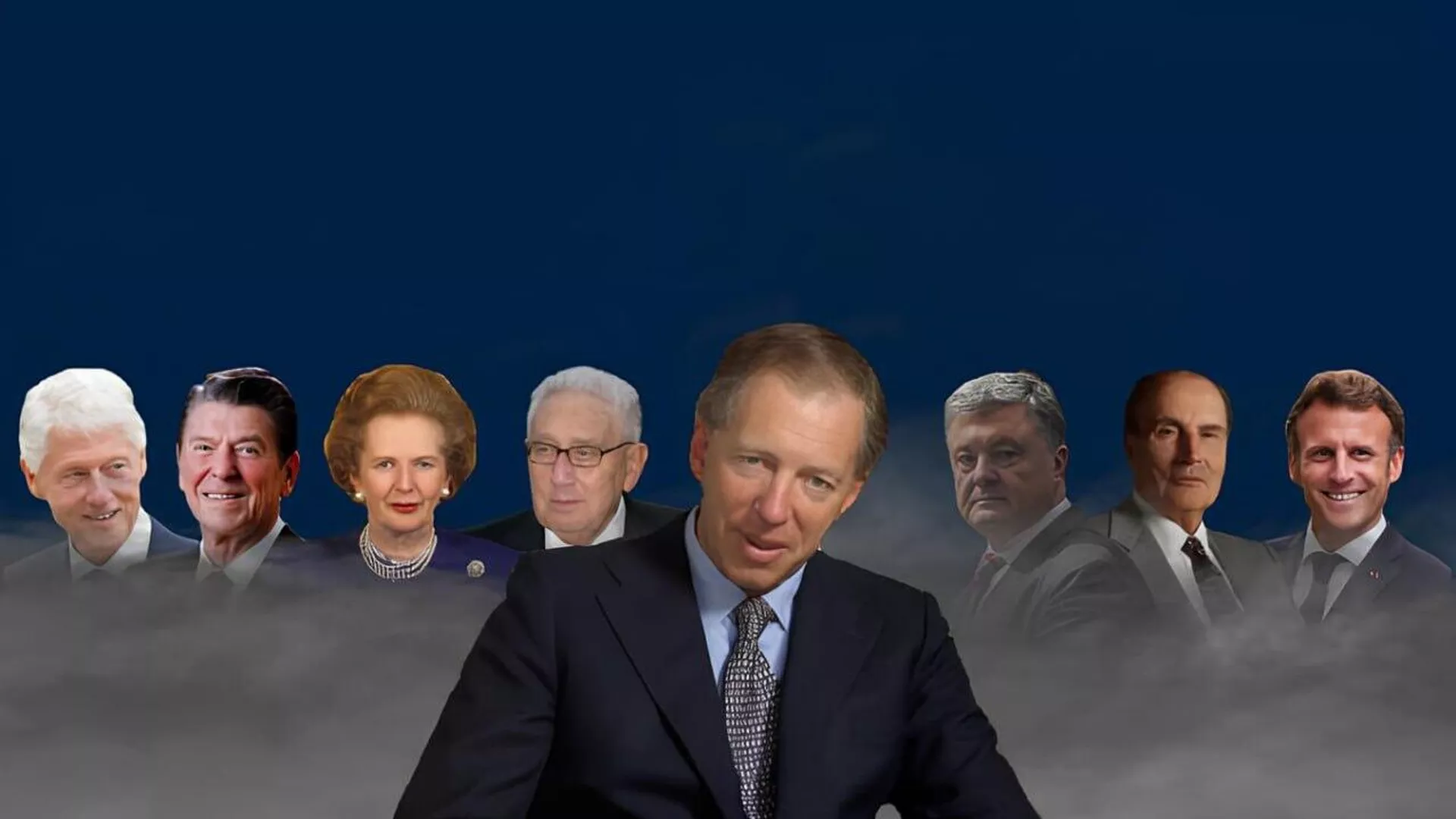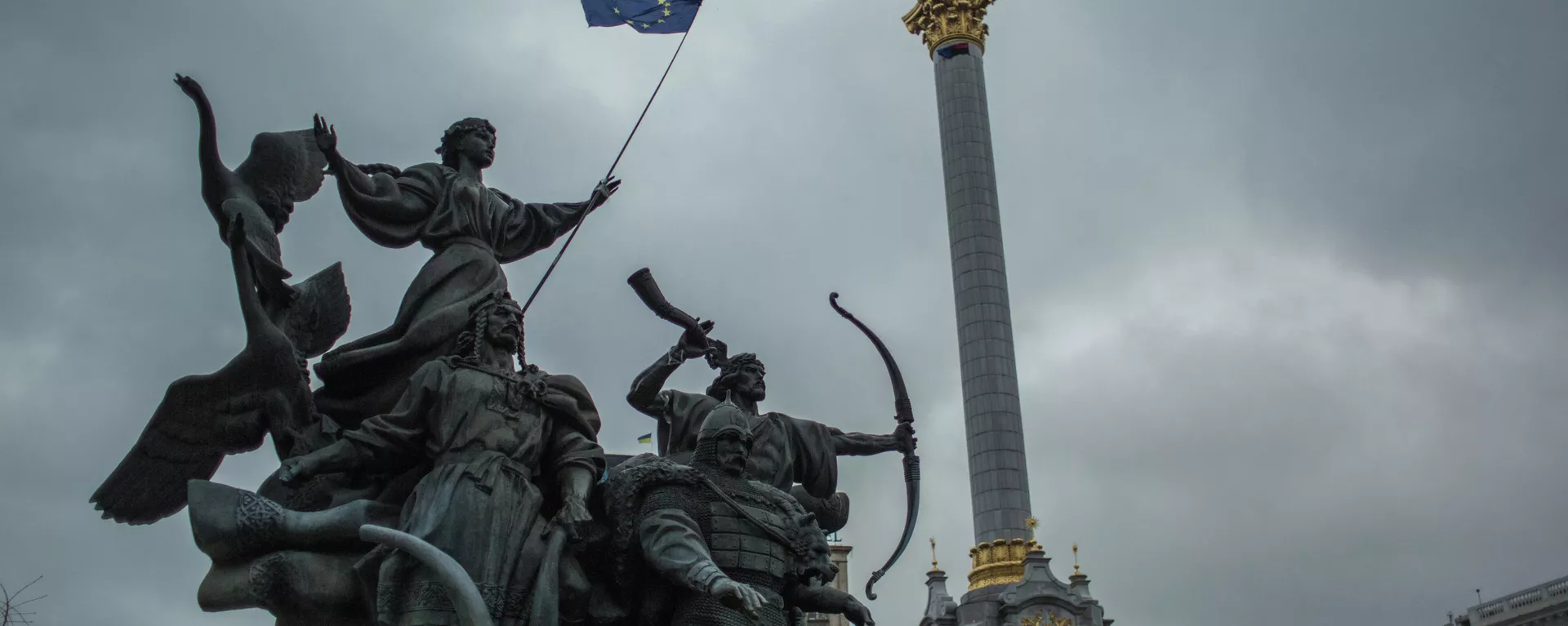
© Sputnik
How powerful is the Rothschild banking family? How did they amass their fortune? Just how rich are they? Do they secretly control the world? Sputnik explores.
Media-shy banking firm Rothschild & Co popped up in the news recently when it was revealed that it played a key role in restructuring over $20 bln in Ukrainian debt, including by arranging face-to-face meetings between Kiev officials and vulture funds like Black Rock and Amundi. The Rothschilds are known to have played an active role in carving up Ukraine’s wealth since at least 2014 and the Euromaidan coup.
But in the global scheme of things, despite its rich black soil and immense resource wealth, Ukraine may be just a side project for the banking family, whose role in the creation of the modern international financial order goes back to the 18th century, when German banker Mayer Amschel Rothschild and his five sons forged a global banking empire with offices in Frankfurt, London, Paris, Vienna and Naples.
What is the Rothschild Banking Clan Known For?
Emerging in the heyday of European colonial empires, the Rothschilds cashed in on the vast wealth flowing to the continent to create merchant and private banking, asset management, venture capital, insurance, commodities, sovereign debt, media, transport, real estate, pharmaceuticals, mining, and energy enterprises.
Establishing close ties to the British Crown, Mayer and his sons played an instrumental role in financing and operating colonial megaprojects of the day, from the Suez Canal trade artery to the East India Company – the British imperial megacorporation which ruthlessly ruled over India as a private company through much of the 18th and 19th centuries, sucking out untold wealth.
The family proved highly active in the international politics of the tumultuous 19th and 20th centuries, betting on Britain against France during the Napoleonic Wars by financing Hessian mercenary soldiers and loaning money to the Crown, and using insider knowledge of government deliberations and a sophisticated communication system to make financial decisions that would consolidate its fortunes.
How Rich are the Rothschilds?
A big question mark surrounding the Rothschild family revolves around their net worth, with publicly available valuations varying from a paltry $1 billion to $400 billion and even $1.2 trillion – which would put the family well above the oft-published pop financial media lists of the “world’s richest,” which typically include names like the Waltons, the Arnaults, the Kochs, Elon Musk and Bill Gates.
The difficulty in establishing a precise figure stems from the family’s incredible secrecy, combined with the murky nature of finance capital. The Rothschilds ‘went dark’, financially speaking, in the early 20th century, when the introduction of national taxation schemes across Europe led family banks to formally split to create ‘independent’ financial institutions.
For instance, while reporting on the family’s public-facing business empire is often focused on the Paris, London and Singapore-based Rothschild & Co, other divisions, like the Geneva-based Edmond de Rothschild Group are less often mentioned, and they are rarely if ever mentioned together.
How Powerful are the Rothschilds?
The world of high finance is an incredibly small place, with the Rothschilds assumed to enjoy a prominent place among banking families like the Rockefellers, Morgans, Barclays, Lazards, Warburgs and others in control over the world’s top private banks, from JPMorgan Chase and Citigroup to HSBC, Deutsche Bank, Societie Generale, and others.
The Rothschilds also have ownership stakes and investments ranging from 5%-50% or more in an array of European, US and Asian mega corporations, from Glencore Mining and TotalEnergies to Siemens, Exxon, Chevron, Repsol, Shell, Mitsubishi, Itochu Corp and the Rio Tinto Mining Corporation.
In his book ‘Big Oil & Their Bankers’, researcher Dean Henderson discovered that the Rothschilds and a clique of seven other banking families enjoy a controlling stake in the New York Federal Reserve Bank – the most powerful Fed bank and the heart of America’s financial system. Other investigators believe the Rothschilds either control the city of London and the Bank of England, or own it outright, although this has been disputed.
Do Rothschilds Control the World's Politicians?
A handful of political figures, including several of America’s founding fathers, warned about the threat posed by the rise of powerful banking clans in their day. In a letter to John Taylor in 1816, Thomas Jefferson characterized the US banking system as a “blot” in “all our constitutions, which, if not covered, will end in their destruction,” and sweep away “the fortunes and morals of our citizens."
"I sincerely believe that banking establishments are more dangerous than standing armies, and that the principle of spending money to be paid by prosperity, under the name of funding, is but swindling futurity on a large scale,” Jefferson warned.
200 years on, Rothschild influence over world politicians has become impossible to conceal, with the family’s prominent members rubbing shoulders with the likes of Ronald Reagan, Bill Clinton, Henry Kissinger, Margaret Thatcher, Francois Mitterrand, Petro Poroshenko, Emmanuel Macron, and others, either taking advantage of business connections and sheer economic and market power, or in Macron’s case – hiring him as an investment banker before he began his political career.
Do the Rothschilds Control the World?
To suggest that the Rothschild family is so powerful that they control the planet’s entire economic and political life and world events would be a stretch, not only due to the never-ending, largely silent struggle for resources and power with competitors, but the ever-shifting geopolitical balance of the modern world, which powerful banking elites might try to influence, but never control outright. Nonetheless, overlooking these shadow forces’ actions, or worse, dismissing them as mere “conspiracy theories,” risks an overly simplistic view on the events and processes taking place in the modern world.














